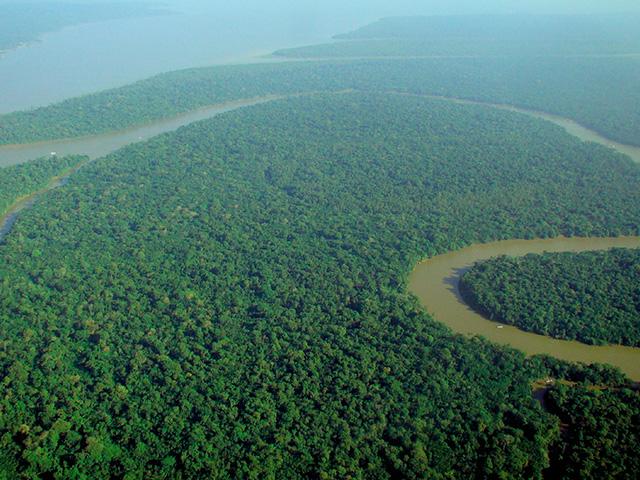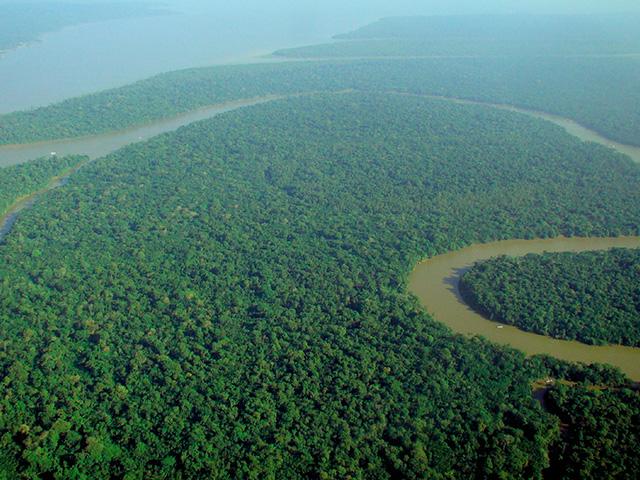An Urban's Rural View
Brazilian Beef Producers Keep Deforesting the Amazon
In November of 2021, 145 countries including the U.S. and Brazil pledged to halt and reverse the loss of the world's forests by 2030. In doing so they acknowledged the key role forests play in meeting the world's climate, biodiversity and sustainable development goals. (https://webarchive.nationalarchives.gov.uk/…)
Yet in 2022, the first full year after the pledge, the tropics lost 10% more primary or old-growth rainforest than in 2021, according to the World Resources Institute and the University of Maryland. (https://research.wri.org/…)
Especially startling was Brazil's role in this trend.
Brazil lost 15% more forest in 2022 than in 2021, and the vast majority of that loss was in the Amazon. And because Brazil is the country with the most tropical forest, its 2022 loss of 4.4 million tropical-forest acres accounted for 43% of the world's total loss.
"Amazonas state, home to over half of Brazil's intact forests, has nearly doubled its rate of primary forest loss in just three years," the World Resources Institute said. "Primary forest losses in this part of the Brazilian Amazon are mainly large-scale clearings -- likely for cattle pastures -- along existing highways."
The institute noted the election of President Luis Inacio Lula da Silva could reverse the forest-losing trend; 2022 was the last year in office of Lula's anti-environmentalist predecessor, Jair Bolsonaro. Maybe, but in a recent article the Economist argued that Lula's plans to save the Amazon are unrealistic; the resistance from the country's powerful agribusiness and energy lobbies is too powerful. (https://www.economist.com/…)
What should American farmers, and especially ranchers, make of all this?
Some may be tempted to stand in solidarity with their Brazilian counterparts. Their argument: An attack on agriculture anywhere is an attack on agriculture everywhere. As long as farmers are providing the world with enough food, the world shouldn't worry too much about how or where farmers produce it.
P[L1] D[0x0] M[300x250] OOP[F] ADUNIT[] T[]
Many cattlemen, though, see their Brazilian competitors' illegal clearcutting as yet another reason to restrict their access to the U.S. market. Meatpackers, including JBS, the largest in both Brazil and in the U.S., have signed agreements with environmental groups and Brazilian prosecutors promising not to source cattle from ranches that clearcut the rainforest. But "cattle laundering" -- moving animals from illegal operations to legal ones for further sale -- is widespread. (https://www.washingtonpost.com/…)
This would have mattered less to U.S. cattlemen back when the U.S. didn't allow imports of Brazilian beef owing to food-safety concerns. But that ban was lifted three years ago and Brazil quickly became one of the top exporters to the U.S. American imports of Brazilian beef surged in 2021 and again in 2022. It's no coincidence that in 2022 Brazilian cattle ranchers were increasing their clearcutting of the Amazon.
The relationship between imports and clearcutting has grabbed Washington's attention. On June 22 the Senate Finance Committee held hearings. Oregon Senator Ron Wyden, the committee chair, blasted the Brazilian government for blocking access to certain cattle-shipment records.
Wyden also criticized JBS for saying it couldn't monitor its indirect suppliers when "outside investigators that lack JBS's considerable resources were able to analyze records that proved the existence of deforestation in the company's supply chain."
(https://www.finance.senate.gov/…)
Testifying for JBS, Global Chief Sustainability Officer Jason Weller said the company traces indirect suppliers using a blockchain-based platform that currently covers 45% of the cattle processed by JBS. The goal is 100% participation by 2025. "Beginning in 2026, all direct suppliers and tier 1 indirect suppliers who wish to do business with JBS must be on the platform," he said. (https://www.finance.senate.gov/…)
Montana rancher Leo McDonnell testified on behalf of the United States Cattlemen's Association, offering a detailed refresher course on the problematic history of Brazilian beef. (https://www.finance.senate.gov/…)
McDonnell charged Brazilian beef producers with deforesting the Amazon, peddling unsafe products, exploiting workers and bribing Brazilian officials to finance expansion. Brazil, he said, is "a bad actor in the global marketplace," especially in beef.
McDonnell outlined seven steps his organization would support to protect U.S. cattlemen from Brazil. To me, one stood out -- legislation introduced in a previous Congress to restrict "access to U.S. markets for commodities originating from illegally deforested land."
See DTN Policy Editor Chris Clayton's coverage of the hearing here: https://www.dtnpf.com/…
It's not just that the European Union has already done something similar. (https://www.europarl.europa.eu/…)
Laws like this are justified by economics as well as ecology.
Clear cutters, like polluters, impose a cost on society that isn't reflected in the market price of their cattle. By economic logic, it should be. Tariffs or taxes are one way to fix these market failures, which economists call "negative externalities." Outright bans are another.
How much either would discourage clearcutting is uncertain. Most Brazilian beef is consumed domestically. China is the biggest export market. And as cattle laundering shows, clear cutters know how to foil efforts to clamp down on them.
Still, even if it didn't work perfectly, a clear-cutting tariff or ban would be a step in the right direction.
Urban Lehner can be reached at urbanize@gmail.com
(c) Copyright 2023 DTN, LLC. All rights reserved.






Comments
To comment, please Log In or Join our Community .